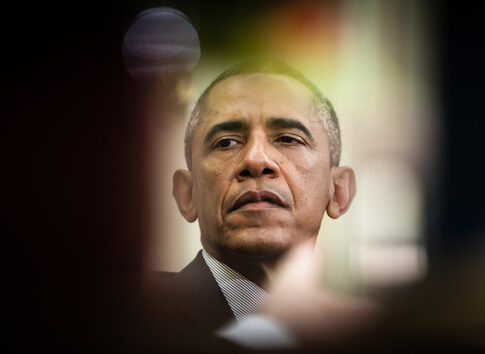Secretary of State Marco Rubio has officially shuttered the US Agency for International Development (USAID), integrating it into the State Department and slashing 85% of its programming. This decisive move has ignited fierce criticism from former presidents George W. Bush and Barack Obama, who warn that the dismantling could cost millions of lives globally through reduced healthcare, education, and emergency assistance programs. Is the controversial study published in the Lancet Biased?
Rubio Eliminates “Charity-Based” Foreign Aid
Secretary of State Marco Rubio has officially ended the United States Agency for International Development (USAID) as an independent agency, incorporating its reduced functions into the State Department. The significant restructuring includes cutting approximately 85% of USAID’s programming, effectively terminating what Rubio described as an ineffective “charity-based model” of foreign assistance.
Rubio defended the decision by emphasizing that trade relationships would better serve both American interests and developing nations than traditional aid models. A senior State Department official reinforced this position, stating bluntly: “No one is saying that gay men in Africa shouldn’t be on PrEP [HIV prevention medication], that’s wonderful, it doesn’t mean that the United States has to pay for every single thing.”
Presidents Barack Obama & George W. Bush delivered rare open criticism of the Trump administration & singer Bono held back tears as he recited a poem – in an emotional video farewell on Monday with staffers of the US Agency for International Development. https://t.co/89mkx4z838 pic.twitter.com/zTYm7bXMvu
— Fly Sistah 🪷 (@Fly_Sistah) June 30, 2025
Former Presidents Unite in Opposition
Both former President George W. Bush and Barack Obama have issued rare joint criticism of the decision, highlighting USAID’s historical importance to American soft power and global humanitarian efforts. Bush, who launched the President’s Emergency Plan for AIDS Relief (PEPFAR) during his administration, questioned the fundamental values at stake: “This program shows a fundamental question facing our country — is it in our nation’s interest that 25 million people who would have died now live? I think it is.”
Obama characterized the dismantling as “inexplicable” and a “colossal mistake” that threatens vital humanitarian work worldwide. The former Democratic president didn’t mince words, stating: “Gutting USAID is a travesty and it is a tragedy because it’s some of the most important work happening anywhere in the world.”
Bono Bids Emotional Farewell to USAID Staffers Fired By Trump: ‘You Were the Best Of Us’https://t.co/kNPZ3LdTBR
— billboard (@billboard) July 1, 2025
Predicted Human Cost Sparks Debate
A controversial study published in The Lancet medical journal has intensified the debate by predicting that over 14 million people, including many children, could die by 2030 as a direct result of these aid cuts. Bob Kitchen from the International Rescue Committee confirmed that the death prediction aligns with their field observations, noting that nearly 400,000 Sudanese refugees and over 500,000 Afghans have already been affected by reduced assistance.
State Department officials have strongly disputed these figures, claiming The Lancet study was based on incorrect assumptions and arguing that aid will continue more efficiently under the new structure. While PEPFAR will remain operational, its focus will shift primarily to preventing mother-to-child HIV transmission, with the U.S. no longer funding PrEP medication for at-risk populations.
The Trump administration maintains it is exploring innovative aid solutions despite the cutbacks, such as new food delivery mechanisms in Gaza. European nations and Britain have similarly reduced foreign aid budgets as they increase defense spending, reflecting a broader Western trend toward reconsidering traditional humanitarian assistance models.
Humanitarian experts warn that beyond the immediate human cost, aid cuts could potentially destabilize countries like Ethiopia and Kenya, increasing migration pressures. The fundamental restructuring of American foreign assistance marks one of the most significant shifts in U.S. international development policy in decades, reflecting competing visions of America’s role and responsibilities on the global stage.


